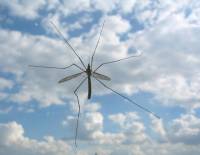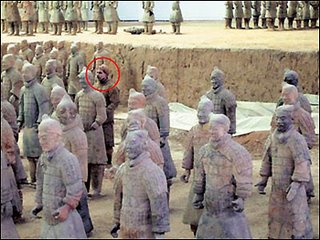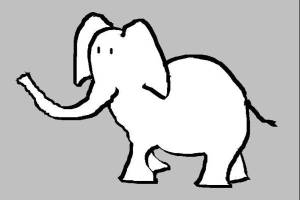There's an article on CSICOP, The Case of the ‘Fish-ibian’, about the evolutionary transition between different groups of vertebrates (fish, amphibians, reptiles, dinosaurs, birds and mammals). It concentrates on the transitional form between fish and amphibians.
It makes a point that I had never properly appreciated before:
"These first amphibians, while classified as amphibians, are quite different from modern frogs and salamanders we see today. These first amphibians evolved from primitive fishes, which are also unlike any fish we have today. "
As someone who often tries to explain basic scientific principles to a 5 year old, it means that the simplistic stories I've told about evolution, e.g. "fish evolved into amphibians which evolved into reptiles which evolved into mammals", are not quite true.
It makes a point that I had never properly appreciated before:
"These first amphibians, while classified as amphibians, are quite different from modern frogs and salamanders we see today. These first amphibians evolved from primitive fishes, which are also unlike any fish we have today. "
As someone who often tries to explain basic scientific principles to a 5 year old, it means that the simplistic stories I've told about evolution, e.g. "fish evolved into amphibians which evolved into reptiles which evolved into mammals", are not quite true.
We ought to say something along the lines of "some ancient fish evolved into modern fish while some other ancient fish evolved into ancient amphibians (and all the other ancient fish became extinct), then some ancient amphibians evolved into modern amphibians, while some other ancient amphibians evolved into ancient reptiles... etc." Tricky stuff.
The article has a diagram that makes it a bit clearer:
The article has a diagram that makes it a bit clearer:
This reminds me of the following image, one that always brings home the interconnectedness of living creatures. Imagine holding your mother's hand and her holding her mother's hand and so on in an imaginary line threading through the past, then imagine the same but for some other person, eventually the lines join at a common ancestor and the length of the combined line is a measure of how closely related you are. If it were your cousin then the lines would join quite quickly: e.g. you, your mum, your grandmother, your aunt, your cousin. If it were someone else then the connection might be several generations back.
Keeping this image in your head, think what it means in terms of the proposition that people and chimpanzees share a common ancestor. You've got yourself at one end of the line and a chimpanzee at the other; in between there are hundreds of thousands of generations of people, hominids and primate ancestors until you hit your common ancestor 5-7 million years ago. Presumably there are long stretches of the line where everyone looks pretty much the same, and other parts where slight changes can be seen between different parts of the line, and every so often there will be very sudden changes.
If you imagine it with a modern fish at one end, then the line becomes much, much longer partly because the join is so far back in time, but also because the time between generations gets shorter as you go back through primitive mammals, reptiles and amphibians. Ultimately you get to your common ancestor, some ancient fish, possibly called Harold, who is both your n-great grandmother and the fish's x-great grandmother where n and x are very large.



